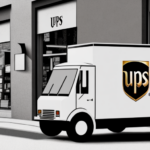A Eulogy for Black Friday: Saying Goodbye to an Era of Shopping Frenzy
Black Friday, the day after Thanksgiving, has long been associated with the start of the holiday shopping season in the United States. Traditionally, it has been a day of incredible deals, long lines, and frenzied shoppers striving to secure the latest bargains. However, times have changed, and the era of Black Friday shopping frenzy is diminishing. In this article, we explore the reasons behind the decline of Black Friday and envision the future of holiday shopping.
The Origins of Black Friday and Its Transformation Over the Years
Black Friday's roots trace back to the early 1950s in Philadelphia, where police officers used the term to describe the chaos caused by the influx of shoppers and tourists the day after Thanksgiving. Retailers later adopted the term to signify the day they would turn a profit, moving "into the black" financially.
Over the decades, Black Friday has evolved from a single-day event to a multi-day extravaganza, often starting weeks before Thanksgiving. Retailers offer irresistible deals to attract shoppers, intensifying competition. This has led some stores to open on Thanksgiving Day, sparking backlash from consumers and employees alike.
Despite its popularity, a growing movement has emerged to boycott Black Friday. Critics argue that the consumerism and materialism associated with the event contradict the true spirit of the holiday season. Additionally, concerns about the environmental impact of increased production and consumption have gained traction.
In response, retailers have begun promoting alternative shopping events like Small Business Saturday and Giving Tuesday, encouraging support for local businesses and charitable organizations. These events advocate for a more sustainable and community-oriented approach to holiday shopping, resonating with consumers seeking meaningful ways to celebrate the season.
The Evolution of Consumer Behavior: Why Black Friday is No Longer Relevant
One primary reason for Black Friday's decline is the shift in consumer behavior. The rise of e-commerce has empowered consumers to compare prices and find better deals online, eliminating the need to endure crowds and long lines. The convenience of online shopping allows consumers to avoid the rush and chaos traditionally associated with Black Friday.
Moreover, there's a growing preference for sustainable and ethically produced products. The mass consumption promoted by Black Friday conflicts with this trend, leading many consumers to disengage from the event in favor of more responsible consumption practices.
The increasing popularity of alternative shopping events like Small Business Saturday and Cyber Monday also contributes to Black Friday's decline. These events offer consumers opportunities to support local businesses and access online deals without the negative aspects of Black Friday. Additionally, many retailers now offer promotions throughout the holiday season, reducing the necessity of a single shopping day.
The Impact of Online Shopping on the Decline of Brick-and-Mortar Stores
The surge in online shopping has significantly impacted brick-and-mortar stores, leading to store closures and bankruptcies. Consumers can now purchase products from anywhere in the world at any time, without leaving their homes. This shift pressures traditional retailers to adapt, though many struggle to keep up.
One major advantage of online shopping is the ability to compare prices and products across multiple retailers, enabling consumers to find the best deals. This puts additional pressure on physical stores to offer competitive pricing, which can be challenging due to higher overhead costs like rent and staffing.
Furthermore, the convenience of home delivery—often within a few days—eliminates the need to travel to a store, find parking, and carry items home. This convenience alone drives many consumers to prefer online shopping, further diminishing sales for traditional retailers.
The Environmental Consequences of Black Friday's Mass Consumption
Black Friday's mass consumption has significant environmental repercussions. Increased shopping leads to higher energy consumption, greenhouse gas emissions, and waste production. The production of goods contributes to climate change, while packaging waste and discarded products pollute the environment.
The culture of waste and disposability promoted by Black Friday is unsustainable. A shift towards more sustainable and responsible consumption is essential to address these environmental challenges.
Participating in alternative shopping events like Small Business Saturday or Cyber Monday can mitigate these impacts. Small Business Saturday encourages support for local businesses with often more sustainable practices, while Cyber Monday promotes online shopping, potentially reducing transportation and packaging waste. By choosing these alternatives, consumers can enjoy holiday shopping benefits while positively impacting the environment.
What Will the Future of Holiday Shopping Look Like?
The future of holiday shopping is likely to emphasize sustainability, with a focus on responsible and ethical consumption. Consumers are increasingly demanding transparency from retailers regarding product origins, production methods, and environmental impact. Retailers must adapt to these preferences to retain customers.
E-commerce will continue to shape holiday shopping, offering greater convenience, extensive product selections, and competitive deals. This trend presents challenges for brick-and-mortar stores in maintaining their market share.
Additionally, personalized shopping experiences will become more prevalent. Retailers will leverage data and technology to create customized experiences, tailoring product recommendations and promotions to individual preferences.
Emerging technologies like augmented reality (AR) and virtual reality (VR) may further transform shopping. Customers could virtually try on clothes or visualize how furniture fits in their homes before purchasing, enhancing the online shopping experience and reducing return rates.
Alternatives to Black Friday: Supporting Small Businesses and Sustainable Consumption
Alternative shopping events such as Small Business Saturday and Giving Tuesday offer healthier alternatives to Black Friday's frenzy. Small Business Saturday promotes shopping at local businesses, supporting communities and the local economy. Giving Tuesday encourages charitable donations over consumer spending.
Consumers can also make more conscious purchasing decisions by choosing sustainable and ethically produced goods, which have a smaller environmental footprint. These choices align with a more respectful and sustainable mode of consumption.
Participating in clothing swaps with friends or family provides a fun and sustainable way to refresh wardrobes without contributing to fast fashion. Additionally, local markets and fairs showcasing handmade and locally sourced goods offer unique shopping experiences while supporting small businesses.
Our consumption habits significantly impact the environment and society. Supporting small businesses and making conscious purchasing decisions contribute to a more sustainable and equitable future.
The Psychological Effects of Black Friday's Shopping Frenzy
Research indicates that Black Friday's frenzy can negatively affect shoppers' mental well-being. The pressure to find deals and navigate crowds can lead to stress, anxiety, and even physical harm. Furthermore, relentless advertising and media coverage create a sense of urgency, fostering impulse buying and overspending.
By reducing consumption pressure and promoting thoughtful consumption, we can alleviate some of the psychological stress associated with Black Friday's shopping frenzy.
How Retailers are Adapting to the Changing Landscape of Holiday Shopping
Retailers are responding to the evolving holiday shopping landscape by enhancing their e-commerce platforms and digital marketing strategies. Many are improving online experiences with advanced search tools, personalized recommendations, and loyalty programs that reward customer purchases.
Investing in sustainable and ethical production is also a priority for many retailers, with an increasing number of products made from environmentally friendly materials and through ethical processes. Combined with new technologies and digital experiences, these trends indicate a future where holiday shopping aligns with consumer values and priorities.
A Look at the Global Phenomenon of Black Friday and Its Cultural Impacts
Black Friday has transcended American borders, becoming a global phenomenon with retailers worldwide offering deals and discounts to capture the holiday shopping market. However, the cultural impact varies across countries and regions, with some embracing the shopping frenzy while others resist it.
The global spread of Black Friday underscores the pervasive influence of consumerism and its associated environmental and social challenges. It highlights the need for innovative consumption practices that prioritize responsibility, sustainability, and ethics, addressing the 21st century's pressing issues.
Conclusion
The era of Black Friday's shopping frenzy is waning. The rise of e-commerce, consumer demand for sustainable and ethical products, and shifting consumer behaviors have all contributed to this transformation. Retailers must adapt by offering more personalized and sustainable products and experiences.
Consumers also play a crucial role by making conscious purchasing choices, supporting small businesses, and advocating for responsible consumption. Together, we can shape a future that is more sustainable, ethical, and respectful of our planet's resources. Goodbye, Black Friday—we can do better.








